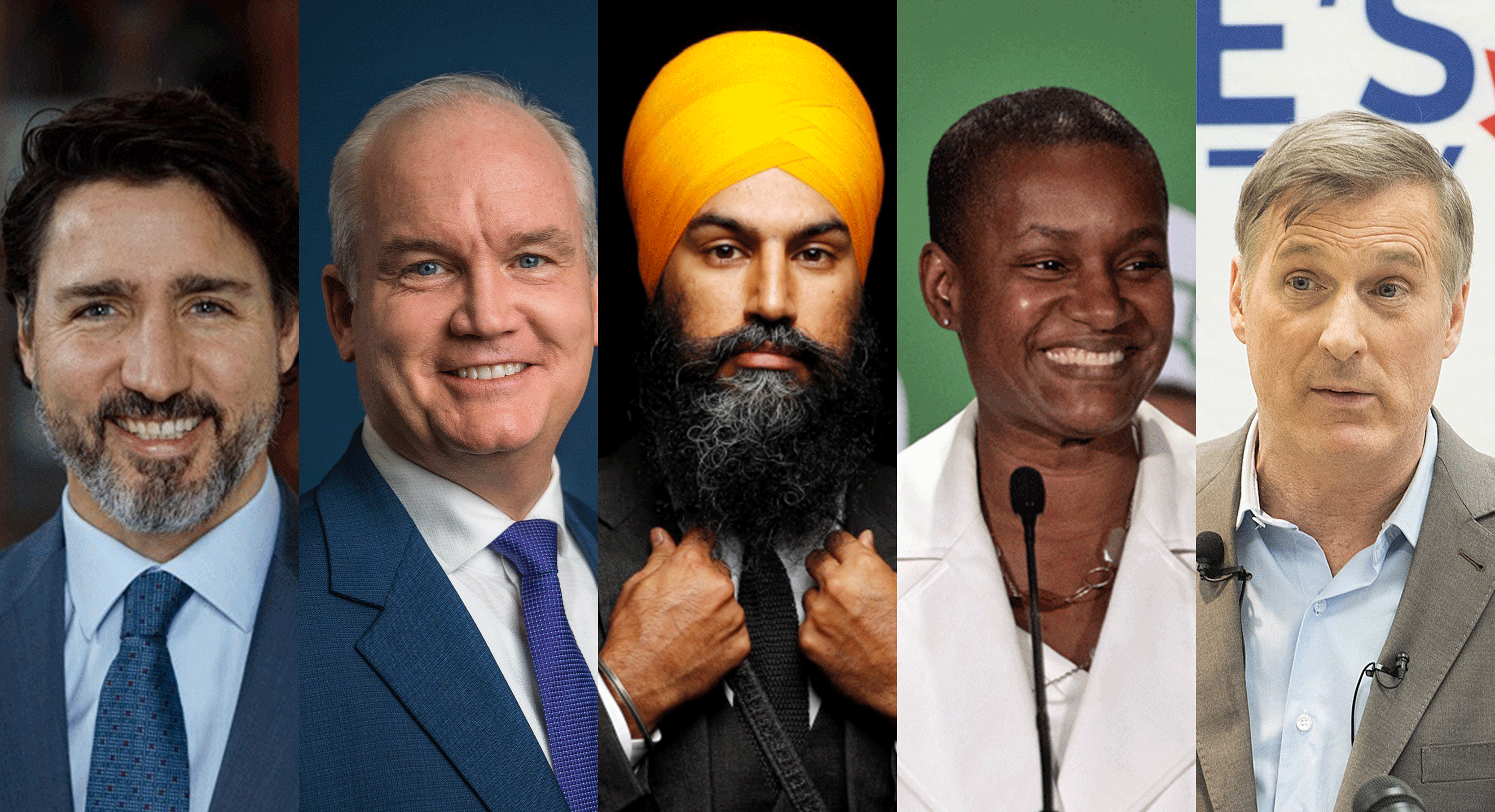By Rochelle Raveendran
With the federal election coming up on Monday, The Eyeopener rounded up how each political party is addressing post-secondary education in their platforms.
Liberal Party of Canada
The Liberal platform states an intention to permanently eliminate federal interest on Canada Student Loans and Canada Apprentice Loans. The government has temporarily suspended interest on student and apprentice loans until April 2023.
Federal student loans either have a floating or fixed interest rate. Floating interest rates charge the prime rate, which is currently 2.5 per cent in Canada, whereas fixed rates have a total interest of the prime rate plus two per cent.
According to a Statistics Canada report, a bachelor’s or master’s student owes an average of $28,000 in student debt at graduation.
The Liberals also plan to increase the repayment assistance threshold to $50,000 for Canada Student Loan debtors who are single, meaning they only have to begin repaying their loans once they earn at least $50,000 annually. The current threshold to qualify as a single person is $31,726, according to the Government of Canada website.
In an effort to expand mental health services for post-secondary school students, the Liberals also propose to invest $500 million to hire up to 1,200 mental health care counsellors at post-secondary institutions.
Additionally, 10 per cent of the fund will be allocated annually for Indigenous-governed and operated post-secondary schools.
If re-elected, the Liberal government plans to boost research capabilities at Canadian universities and colleges by creating an additional 1,000 Canada Research Chairs.
The Canada Research Chairs program provides universities with up to $10 million over seven years to support researchers and research programs. There are currently 1,892 filled Canada Research Chair positions.
The Liberals also plan to establish a $75 million annual fund for post-secondary institutions to help commercialize research, including securing patent rights for research done within their schools and connecting researchers with businesses “to help put these innovations into action.”
Thirty million in funding will be distributed over five years toward helping promising Black graduate students.
Additionally, the party intends to permanently increase funding for post-secondary institutions in francophone minority communities to $80 million annually over four years.
These funds would go towards post-secondary schools in Northern Ontario and New Brunswick, as well as the Université de l’Ontario français and the University of Alberta’s Campus Saint-Jean.
Conservative Party of Canada
The Conservatives promise to create a Canada Job Training Fund, composed of $250 million invested over two years.
The fund will provide grants to numerous organizations, including post-secondary schools, for projects that provide training, particularly in skilled trades. The fund will also reach out to underrepresented groups and support “talent needs” of small businesses, according to the party’s platform.
The Conservatives are hoping to promote free speech on campuses by ensuring public post-secondary schools “accommodate the range of perspectives that make up Canada.”
In August 2020, Conservative leader Erin O’Toole said he would make federal funding for post-secondary schools dependent on their acceptance of certain principles of free speech, CBC previously reported. However, the Conservative platform for this election cycle does not mention this policy.
The Conservatives also pledge to equally spread federal funding for university research and cultural programs across the country, claiming this will guarantee Western provinces get a fair share of funding.
Furthermore, the Conservatives pledge to allocate $30 million in annual funds for francophone post-secondary schools and will collaborate with provinces to significantly participate in their “future financing.”
New Democratic Party (NDP)
The NDP promises to make post-secondary education more affordable by reducing tuition fees, with the long-term goal of making post-secondary schooling publicly funded.
The party plans to remove interest from federal student loans and double non-repayable Canada Student Grants.
The current Liberal government has already doubled Canada Student Grants until April 2023, providing a maximum of $6,000 to full-time students this academic year.
The NDP platform also pledges to introduce a debt forgiveness program that will forgive up to $20,000 in student debt for graduates.
NDP leader Jagmeet Singh has said there will be an interest free five-year grace period for graduates during which they will not have to make payments on their federal student loan. Currently, there is a grace period of six months.
Furthermore, the platform states an intention to expand financial assistance for Indigenous youth and increased educational opportunities for children who grew up in foster care.
According to 2016 census data, 52.2 per cent of children in foster care are Indigenous, despite only composing 7.7 per cent of Canada’s child population.
In addition, the NDP plans to make it mandatory for universities to develop plans for ending campus sexual violence as part of a larger commitment to advancing gender equality.
Green Party of Canada
The Green Party plans to cancel all federal student loan debt and abolish tuition for post-secondary schools. According to the party’s estimation, a publicly funded post-secondary education would cost approximately $10.2 billion annually.
The platform also states a Green government will budget $10 billion toward supporting post-secondary schools, with a focus on mentorship, student-professor contact, inclusive policies and tenure-track hires.
They further pledge to increase the Canada Training Benefit, a refundable tax credit for workers aged 25 to 64 who are receiving occupational skills training from an eligible post-secondary school.
Eligible workers presently receive an annual credit balance of $250, with a lifetime limit of $5,000.
Furthermore, the Green Party plans to increase access to postgraduate education by doubling the quota for Canada Graduate Scholarships available for PhD students and triple the number available for master’s students.
Currently, up to 3,000 master’s students annually receive Canada Graduate Scholarships.
The Green Party also pledges to ensure permanent stable funding to support post-secondary schools in minority language communities across the country.
People’s Party of Canada (PPC)
The PPC platform states that if elected, a PPC government will withhold federal funding from post-secondary schools “shown to be violating the freedom of expression of its students or faculty.”













Leave a Reply